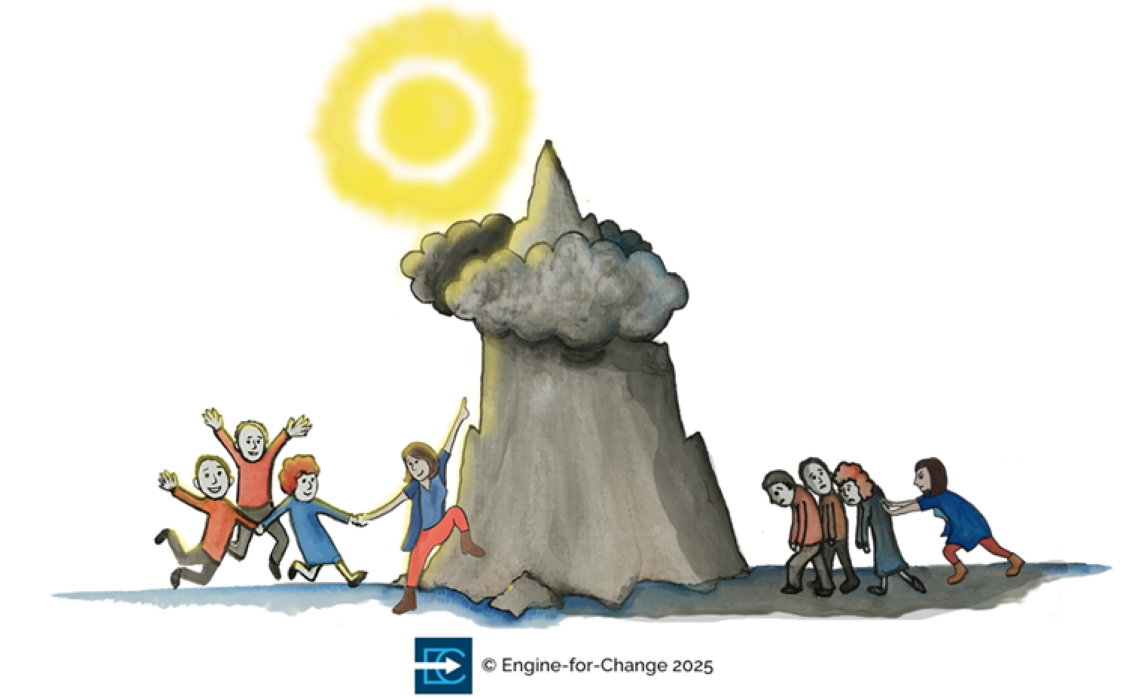Many of us often fail to fully appreciate and leverage the power of human-to-human dynamics when we’re caught up in the demands of everyday life at work. For change leaders in particular and other folks involved in change management, this intangible factor can often be the critical ingredient in the alchemy of change that sticks.
Savvy change managers, those alchemists who are well versed in delivering successful change, know that the psychology of interpersonal dynamics sits at the heart of effective stakeholder management.
It’s nigh on impossible to win over stakeholders, or get results through them, without taking the time and effort to “connect” with them.
I’ve learned that walking a mile in their shoes is always a great doorway to get into their heads and hearts; especially when dealing with employees in the trenches. It’s a fantastic conduit to really grasp their take on one’s work agenda and what they truly think and feel about it – these are critical factors which are often overlooked or given inadequate priority yet have a major impact on the ease and success of any initiative that significantly affects people’s work.
Even if your work doesn’t entail introducing changes to your stakeholders’ responsibilities or job activities, it’s still absolutely crucial to appreciate others’ perspectives at work – especially when you consider that someone in a different position or job role from you could likely have a different point of view from yours.
In some senses, an organisation with different departments is a bit like a house with different rooms. Two people standing in different positions in the same room are unlikely to have exactly the same views due to their differing vantage points. Those differing viewpoints get even more varied if the two people are standing in different rooms.
Sometimes we can be so resolutely locked into our own viewpoints or blinkered by our self-importance that we lose the ability to recognise that there just might be other views; our way may not always be the best way nor the only way.
It’s an important issue that I’ve found myself highlighting many times with coaching and mentoring clients, employees in client organisations and delegates at my talks. And I’ve found that one of the simplest ways to illustrate the power of appreciating others’ perspectives is with the simple business card. If I hold a normal business card up to you and ask you what you see, you will probably describe it as “a business card” and, maybe, read out what the card says – the name, job title, company, and so on. But I, on the other side of the card, will see something different: a blank card on the reverse side. Yet we’d both be looking at the same card. Of course, if we swap positions each of us will be able to see what the other had seen.
As I explain in Sweet Stakeholder Love, keeping your mind open to the possibility and discernment of “other views” when dealing with your stakeholders will help you recognise that you may only ever be noticing or considering “one side of the business card”, or one or two aspects of what is often a multifaceted work issue, task or situation.
The ability to acknowledge such possible alternative points of view that others may hold is one of the strands of emotional intelligence, a vital requirement for healthy intra- and inter-personal relationships. It’s an extremely powerful mechanism that’ll aid your personal effectiveness, particularly your ability to get a fix on your stakeholders first before pushing your own game plan.
Ineffective managers and change agents often rely solely or excessively on the big stick to make stakeholders toe the line. But the more experienced alchemists of change know that the big-stick approach must always be a last resort; and that if you understand your stakeholders’ perspectives, drives and motivations, you’ll be much more able to shape your agenda to address their fears and their needs, and hence make your work more meaningful and relevant to them.
The change alchemists also know that building interpersonal chemistry with individual stakeholders always helps. Stop for a minute and think about one of your difficult stakeholders – what do you actually know about them as a person?
In Part 2, we explore ways to deepen the interpersonal chemistry that is so important to successful change execution.
***
Adapted excerpt from Sweet Stakeholder Love: Powerful Insights and Tactics to Deal with Stakeholder Issues Better and Achieve More Success at Work by Sigi Osagie, published by EPG Solutions Limited © 2021. All rights reserved.







